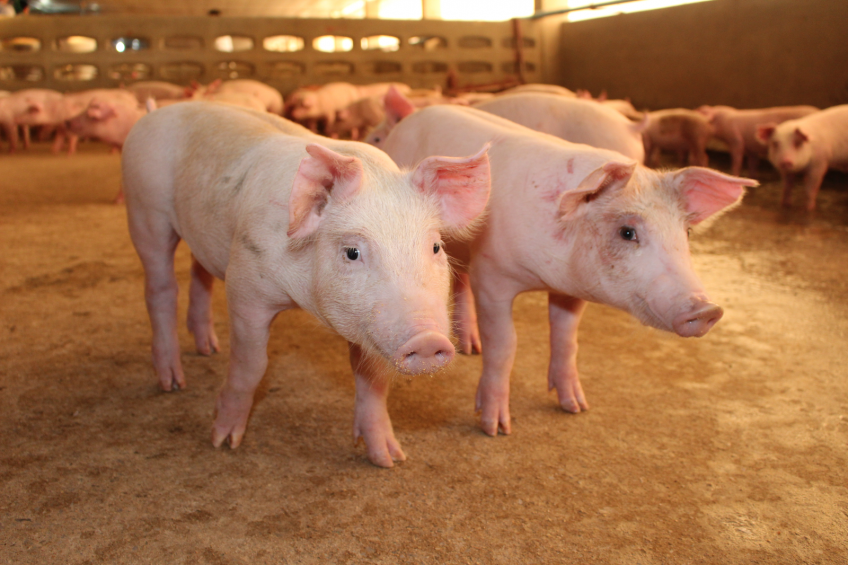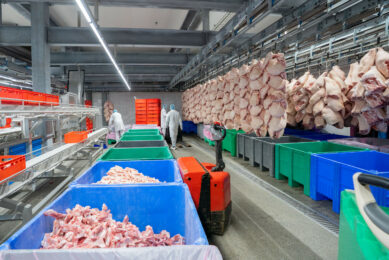Plectasin: An alternative to antibiotics in pigs?

Plectasin may be an effective alternative to antibiotics for the pig industry. Chinese researchers concluded this after a trial with weaner pigs.
The study was recently published in Animal Feed Science and Technology.
Plectasin: An antimicrobial peptide
Plectasin is a so-called antimicrobial peptide, which can be isolated from a wide range of animals, plants, and bacterial species, are small cationic molecules. The researchers write, “Compared with conventional antibiotics, antimicrobial peptides have a broader spectrum, a more rapid killing action and highly selective toxicity.”
The researchers continued by saying that growth performance effects have often been observed, and ‘most importantly’, they added: “Bacteria have difficulty in developing resistance against these peptides due to their ability to disrupt bacterial membranes via non-specific electrostatic interactions with the membrane lipid components. Therefore, antimicrobial peptides may have potential as an alternative to antibiotics for use in livestock industry.”
Effect of plectasin in weaned pigs
Aim of the study was to determine the effects of the recombinant plectasin on growth performance and intestinal health in weaned pigs.
The scientists wrote: “In total, 24 four weaned pigs were randomly assigned to one of four treatments, including a corn-soybean basal diet, the basal diet supplemented with antibiotics (60 mg/kg colistin sulfate), probiotics (Bacillus subtilis ≥109 CFU/g) and recombinant plectasin (60 mg/kg).”
Positive effects on feed intake and weight gain
Results of the 21-day study showed that dietary supplementation with antibiotics and plectasin had positive effects on the average daily feed intake (ADFI) and body-weight gain (ADG).
In the article’s abstract, the scientists stated: “Compared with the corn-soybean basal diet, the ratio of feed to gain (feed conversion ratio, FCR) and diarrhoea rate in both groups were significantly reduced. Pigs fed the diets containing antibiotics and plectasin had a higher villus height and a higher disaccharidase activity in the small intestinal mucosa.”
Effective alternative to antibiotics in pigs
They continued, “Plectasin supplementation also significantly increased the abundance of Bifidobacterium in the ileum. Interestingly, plectasin elevated the absorption of xylose and the expression levels of tight junction protein CLDN1 and ZO-1 in the small intestinal mucosa. The results suggest plectasin may be an effective alternative to antibiotics for the pig industry.”
The original scientific article was published by a range of authors. Author Yan Li is attached to both the Sichuan Agricultural University, Chengdu, China and the Cheng Du Hua Luo Bio-Tech Col, Chengdu, China. The team further consisteed of Jin Wan, Daiwen Chen, Bing Yu, Ping Zheng, Xiangbing Mao, Jie Yu and Jun He, all attached to the Sichuan Agricultural University. Also included in the team was Guang Chen, from the Cheng Du Hua Luo Bio-Tech Col.











